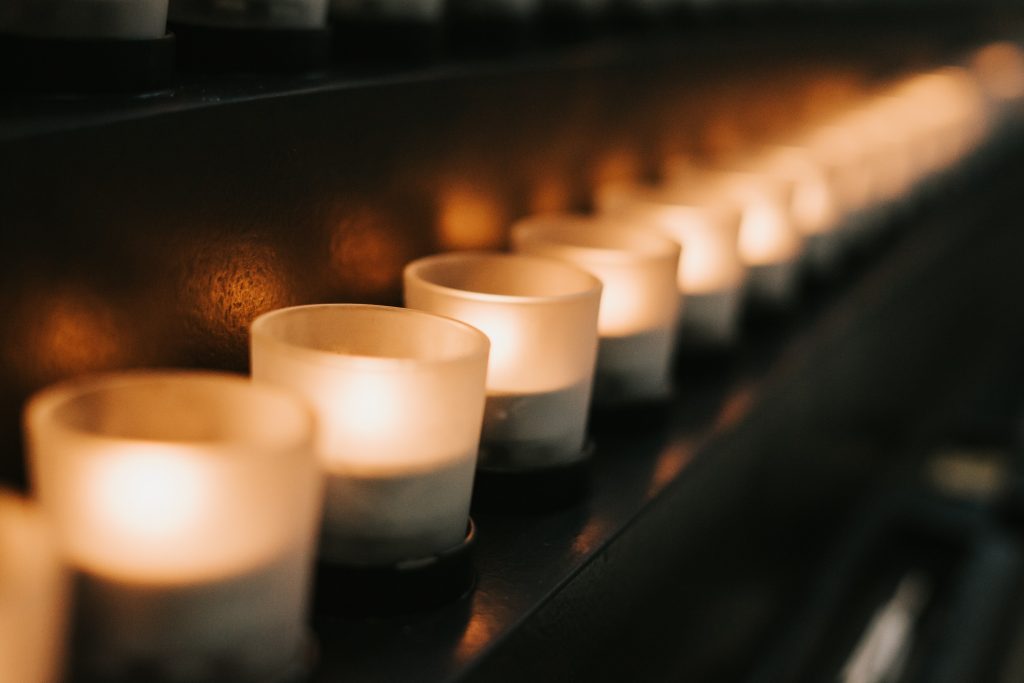 Oregon State University held their 34th annual Holocaust Memorial Week presented by the School of History, Philosophy and Religion in OSU’s College of Liberal Arts. The week was sponsored by Beit Am, the City of Corvallis, the Office of the Provost, and the Center for the Humanities.
Oregon State University held their 34th annual Holocaust Memorial Week presented by the School of History, Philosophy and Religion in OSU’s College of Liberal Arts. The week was sponsored by Beit Am, the City of Corvallis, the Office of the Provost, and the Center for the Humanities.
The events were held April 5 through April 8 and all were free and open to the public. If you missed any, they were held virtually via zoom and are available to the public on OSU – School of History, Philosophy, and Religion youtube channel. Descriptions of each event and recordings can also be found below.
Monday, April 5: Marion Blumenthal Lazan, “Survival”
In the late 1930’s, the Blumenthal family escaped Nazi Germany and settled in The Netherlands. However in 1942, they were seized and deported to the first in a series of concentration camps, which would include Bergen-Belsen, one of the most notorious and deadly symbols of the last phase of World War II. Marion’s father died shortly after liberation. For 40 years, Marion has been speaking publicly about her experiences during the Holocaust and about the lessons learned. She has spoken at venues in almost every state and in a number of countries abroad, to audiences approaching one and one-half million. She is well known for her Holocaust memoir(co-authored with Lila Perl), “Four Perfect Pebbles,” a book that has received universal praise and has sold more than 830,000 copies.
Tuesday, April 6: Roger Grunwald, “The Mitzvah Project”
Roger Grunwald’s mother was an Auschwitz survivor who, in her later years, regularly spoke to young audiences about her experiences during the Holocaust. To honor his mother’s memory, Grunwald, a classically trained actor, co-created “The Mitzvah” (translating to “The Good Deed”), a Holocaust-themed one-act, one-person play, which he has been performing around the world since its premiere in 2014. In the play, he portrays three characters: an Auschwitz survivor; a half-Jewish officer in the Wehrmacht (German army); and a “Jewish comedian-cum-social critic.”
Wednesday, April 7: Jennifer Evans, “Social Media and the Long Shadow of the Holocaust”
Jennifer Evans, a professor of History at Carleton University in Ottawa, defines her primary research interests as “the history of sexuality and visual culture, especially the role of photography and social media as agents of historical meaning.” She is an avid blogger and a primary shaper of “The New Fascism Syllabus: Exploring the New Right through Scholarship and Civic Engagement,” an online resource that is intended to provide curricular ideas and sources to university instructors. Dr. Evans’s many publications include “Life Among the Ruins: Cityscape and Sexuality in Cold War Berlin.”
Thursday, April 8: “The OSU Choirs Sing of the Holocaust and of Healing”
This event will present its audience with the video recording of a concert that took place at the National Cathedral in Washington, D.C., and featured the OSU choirs under the direction of Dr. Steven M. Zielke, the Director of Choral Studies at OSU, Dr. Sandra Babb, and Russell Christensen. The concert consists of two pieces of music: Schlof Main Kind (“Sleep, my child”), is a Yiddish lullaby, sung across the generations with a variety of lyrics and themes, some of them recalling Jewish culture. The second, and considerably longer, work, “To Be Certain of the Dawn,” is an oratorio, with music composed by Stephen Paulus and a libretto authored by Michael Dennis Browne, two well-known artists.
Thursday, April 8: Michael O’Malley and guests, “Teaching the Holocaust”
In July 2019, Governor Kate Brown endorsed legislation that had previously cleared the Oregon Legislature with overwhelming bipartisan support. This legislation mandated Holocaust and genocide education in all Oregon public schools, K-12. Oregon thereby joined more than 20 states nationwide that either currently mandate such education or are committed to doing so in the near future, and the number is growing.
The panel discussion on April 8 should be of particular interest to public-school teachers and to OSU students who intend to teach in K-12. Professor Michael O’Malley of the OSU College of Education will moderate the event, and the panel will consist of three individuals who regularly teach units on Holocaust-related issues – one who does so in high school, one in middle school, and one in elementary school. Each of the panelists will discuss his or her approach to teaching this subject, what appears to have worked well, and what has proven to be particularly challenging.
After the panel presentation, members of the audience will be encouraged to share their views on how Holocaust-genocide education can be provided most effectively in the schools.

